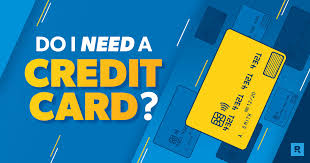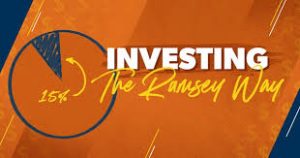The average American household carries $7,951 in credit card debt according to recent data. Behind this staggering number lies a deeper story of financial stress, sleepless nights, and dreams deferred.
Enter Dave Ramsey, a financial guru whose credit card advice has sparked both controversy and life-changing transformations. His zero-credit philosophy stands in stark contrast to mainstream financial wisdom, challenging everything we’ve been taught about money management and wealth building.
In an era where credit cards are marketed as essential tools for modern living, Ramsey’s approach might seem radical. Yet, thousands of success stories suggest there’s profound wisdom in his unconventional methods.
This comprehensive guide explores Dave Ramsey’s credit card advice and how his zero-credit philosophy could revolutionize your financial future.
Skale Money Key Takeaways
Dave Ramsey’s core message about credit cards is simple yet powerful: avoid them completely. His philosophy centers on the belief that living without credit cards leads to greater financial freedom and wealth accumulation.
The key principles include using cash for purchases, building an emergency fund, and investing in assets rather than accumulating debt.
Implementation typically takes 3-6 months, beginning with cutting up credit cards and transitioning to a cash-based lifestyle. The transformation often results in reduced spending, increased savings, and improved financial peace of mind.
Most importantly, Ramsey’s approach demonstrates that living credit-card-free isn’t just possible—it’s potentially life-changing.
Table of Contents
1. Understanding Dave Ramsey’s Zero-Credit Philosophy
At the heart of Dave Ramsey’s credit card advice lies a revolutionary concept: you don’t need credit to build wealth. This philosophy emerged from Ramsey’s personal experience with bankruptcy and his subsequent journey to financial recovery.
He discovered that the conventional wisdom about credit cards being necessary for financial success was fundamentally flawed.
- The “cash is king” principle emphasizes spending only money you actually have
- Credit scores are marketed as wealth indicators but actually measure your relationship with debt
- Physical cash creates a stronger emotional connection to spending
- Ramsey’s personal bankruptcy in his early years shaped his current financial philosophy
2. The True Cost of Credit Card Usage
Most people underestimate the real cost of using credit cards, focusing only on interest rates while ignoring the hidden psychological and financial impacts. Credit card companies have mastered the art of making debt appear manageable and even beneficial.
Average Credit Card Costs vs. Cash Spending:
| Expense Category | Credit Card Users | Cash Users |
| Grocery Shopping | $175/week | $132/week |
| Dining Out | $95/week | $65/week |
| Entertainment | $85/week | $54/week |
| Impulse Buys | $62/week | $23/week |
- Annual fees range from $0-$550, often masked by reward programs
- Average credit card interest rates exceed 20% APR
- Studies show people spend 12-18% more when using credit cards
- Credit card marketing targets emotional triggers and lifestyle aspirations
3. Breaking Down the Myths About Credit Cards
Many commonly held beliefs about credit cards don’t stand up to scrutiny. Following Dave Ramsey’s credit card advice requires understanding and debunking these myths.
Credit Card Myths vs. Reality:
| Myth | Reality |
| You need credit cards for emergencies | An emergency fund provides better security |
| Credit cards are required for online shopping | Debit cards work for most online purchases |
| You can’t build wealth without credit | Many millionaires follow no-credit philosophies |
| Credit card rewards save you money | Studies show cardholders spend more than rewards earned |
- Alternative credit-building methods exist, including manual underwriting
- Modern debit cards offer similar fraud protection to credit cards
- Major hotels and car rental companies accept debit cards with proper documentation
- Credit scores aren’t necessary for financial success
4. The Financial Freedom Formula: Ramsey’s Alternative Approach
Dave Ramsey’s credit card advice extends beyond simply avoiding debt. His alternative approach provides a comprehensive framework for building wealth and achieving financial freedom.
- Start with a $1,000 emergency fund
- Use envelope budgeting system for cash management
- Build wealth through debt-free investing
- Focus on real estate and mutual fund investments
Traditional Banking vs. Ramsey’s Approach:
| Feature | Traditional Banking | Ramsey’s Approach |
| Emergency Fund | Credit Cards | Cash Savings |
| Purchasing Method | Credit | Cash/Debit |
| Investment Focus | Debt Leverage | Debt-Free Assets |
| Risk Management | Credit Score | Insurance & Savings |
5. Real Success Stories: Before and After Zero-Credit Living
Jennifer and Mike Thompson, both teachers, followed Dave Ramsey’s credit card advice and eliminated $45,000 in credit card debt within two years. Their story exemplifies the transformation possible through commitment to zero-credit living.
- Sarah Chen, 28, paid off $32,000 in 18 months using the cash-only system
- The Williams family eliminated $78,000 in debt and built a six-month emergency fund
- Local restaurant owner Mark Rodriguez transformed his business using cash-only principles
- Common success factors include budgeting, accountability, and lifestyle changes
6. Implementation Guide: Your 90-Day Plan to Zero Credit
Transitioning to a credit-card-free lifestyle requires careful planning and systematic execution. This 90-day plan breaks down the process into manageable steps.
Weeks 1-4: Assessment and Preparation
- Calculate total credit card debt
- Create emergency fund
- List all recurring payments
- Order debit cards
Weeks 5-8: Transition Steps
- Cancel automatic payments on credit cards
- Transfer recurring bills to debit cards
- Begin cash envelope system
- Cut up credit cards
Weeks 9-12: Full Implementation
- Complete transition to cash/debit
- Build emergency fund
- Establish new spending habits
- Create debt payoff strategy
7. Handling Financial Emergencies Without Credit Cards
Following Dave Ramsey’s credit card advice means preparing for emergencies differently. A robust emergency plan includes multiple layers of protection.
- Build minimum $1,000 starter emergency fund
- Work toward 3-6 months of expenses saved
- Maintain appropriate insurance coverage
- Develop multiple income streams
- Create emergency response plans for common scenarios
8. The Long-Term Impact: Beyond Financial Benefits
The benefits of following Dave Ramsey’s credit card advice extend far beyond financial improvements. Many followers report significant life changes in multiple areas.
- Reduced anxiety and stress about money
- Improved marriages and family relationships
- Better sleep and physical health
- Enhanced career satisfaction
- Increased generational wealth potential
- Greater sense of control over life
Conclusion
Dave Ramsey’s credit card advice challenges conventional wisdom, but the results speak for themselves. By embracing his zero-credit philosophy, you’re not just changing your financial habits—you’re transforming your entire relationship with money. The journey may seem daunting, but the freedom waiting on the other side is worth every step.
Remember, financial transformation isn’t just about following rules—it’s about changing your mindset and creating a new financial legacy. Whether you’re drowning in debt or simply seeking a better way to manage money, Dave Ramsey’s approach offers a proven path to financial peace.
FAQ Section
How do I travel without credit cards?
Use debit cards and cash. Many travel services accept debit cards, and proper planning ensures smooth trips.
What about building credit for a mortgage?
Manual underwriting allows for mortgage approval without credit scores. Look for lenders who offer this service.
How do I handle online purchases?
Most online retailers accept debit cards. Consider using services like PayPal linked to your debit card.
What if my employer requires a credit check?
Explain your zero-credit philosophy and provide alternative proof of financial responsibility, such as bank statements.
How do I manage business expenses without credit?
Use business debit cards, maintain cash reserves, and develop relationships with vendors who accept direct payments.
What about credit card rewards and points?
Studies show people spend more when chasing rewards. The savings from cash spending typically exceed reward values.
Following Dave Ramsey’s credit card advice isn’t just about avoiding debt—it’s about embracing a new way of thinking about money and building lasting wealth. While the transition may challenge conventional wisdom, the potential for transformation makes it worth considering. Are you ready to take the first step toward financial freedom?
![]()




